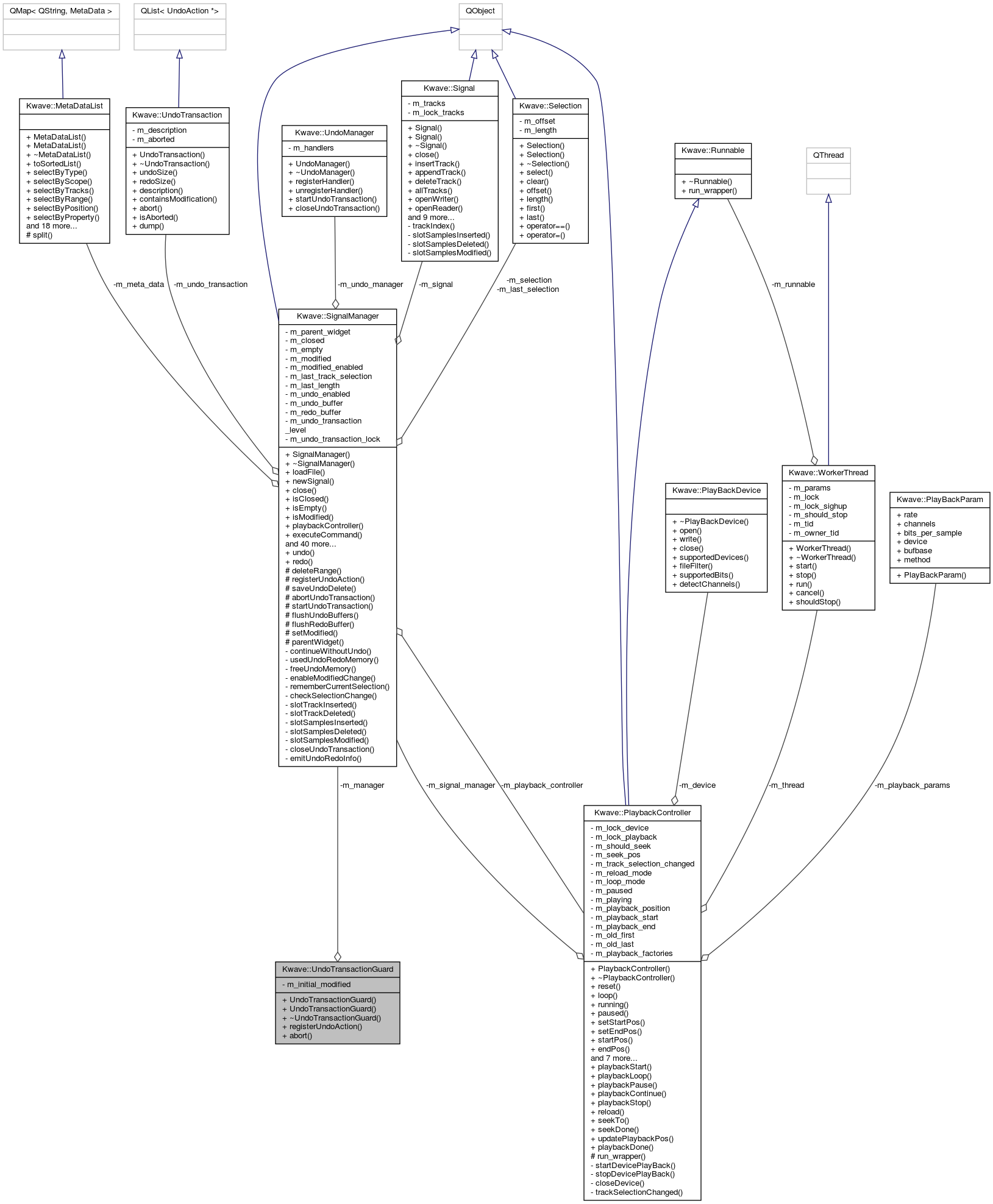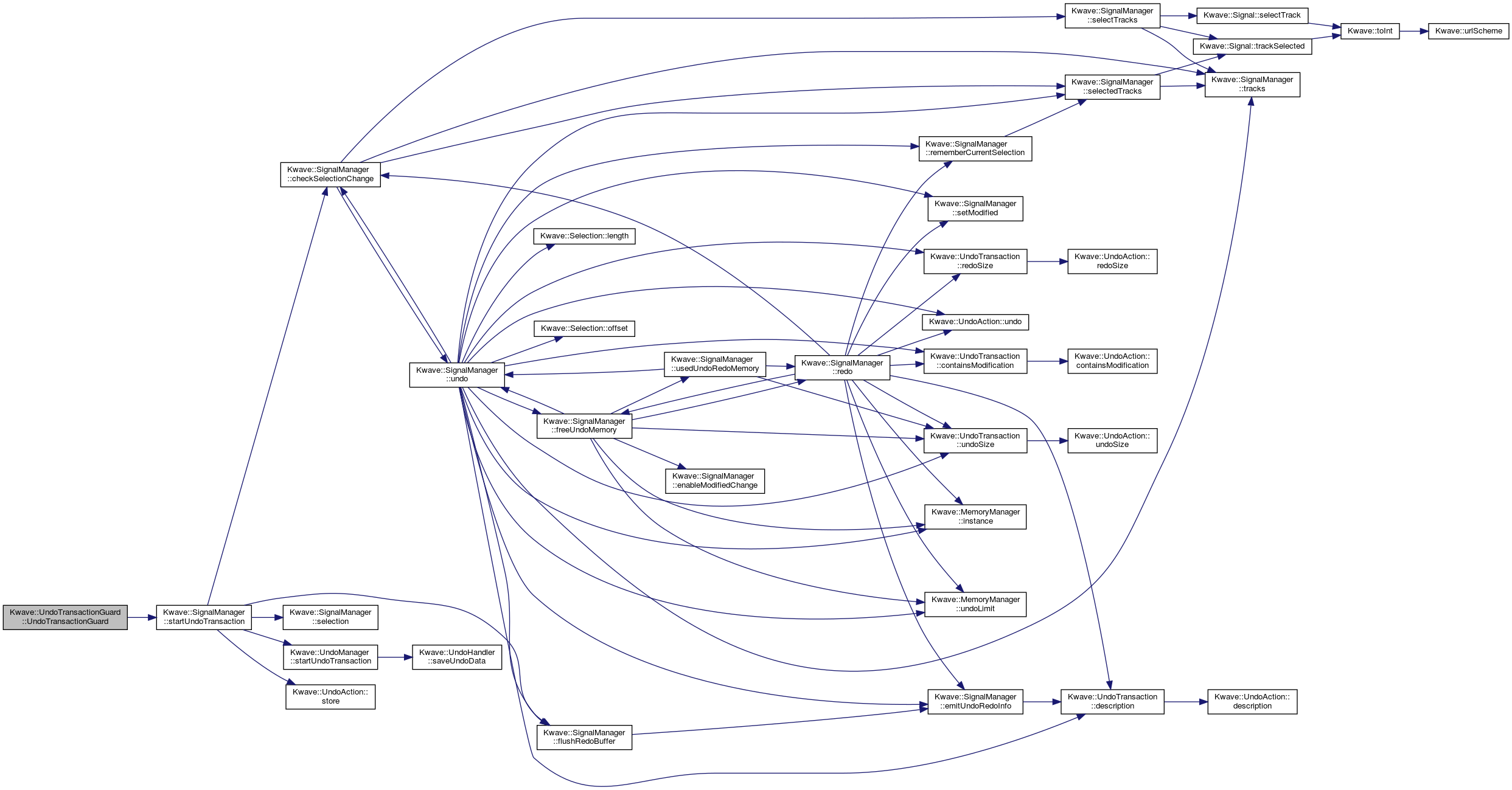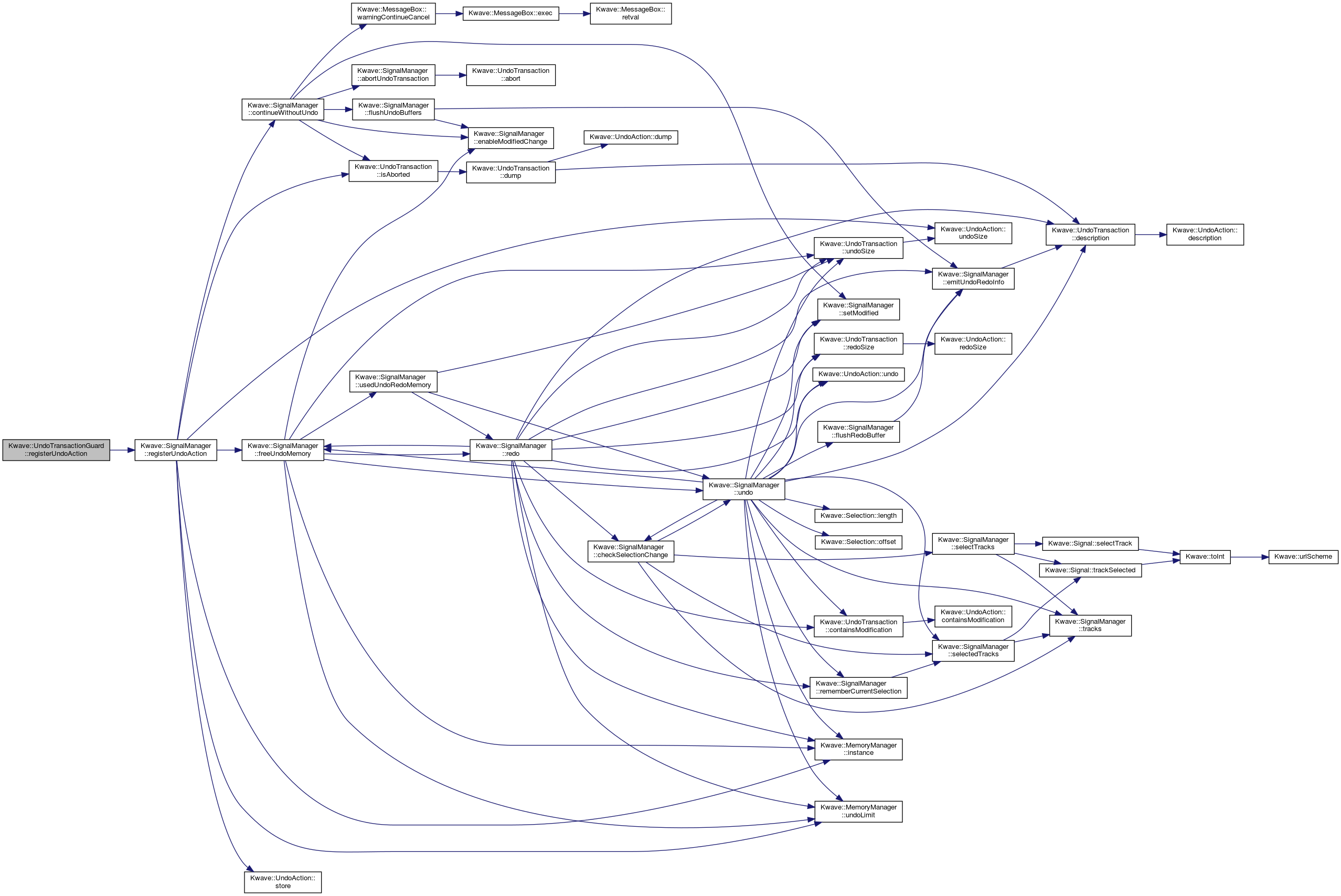#include <UndoTransactionGuard.h>

Public Member Functions | |
| UndoTransactionGuard (Kwave::SignalManager &manager, const QString &name=QString()) | |
| UndoTransactionGuard (Kwave::Plugin &plugin, const QString &name=QString()) | |
| virtual | ~UndoTransactionGuard () |
| bool | registerUndoAction (UndoAction *action) |
| void | abort () |
Private Attributes | |
| Kwave::SignalManager & | m_manager |
| bool | m_initial_modified |
Detailed Description
A simple guard class for opening and closing an undo transaction operating on a SignalManager. Several nested UndoTransactionGuards (or undo transactions) are allowed.
Definition at line 40 of file UndoTransactionGuard.h.
Constructor & Destructor Documentation
◆ UndoTransactionGuard() [1/2]
|
explicit |
Constructor. Also determines the name of the transaction if it is the first of several nested transactions.
- Parameters
-
manager reference to the SignalManager we operate on name the name of the transaction as a user-readable and localized string. [optional]
Definition at line 32 of file UndoTransactionGuard.cpp.
References m_manager, and Kwave::SignalManager::startUndoTransaction().

◆ UndoTransactionGuard() [2/2]
|
explicit |
Constructor for use from a plugin. Also determines the name of the transaction if it is the first of several nested transactions.
- Parameters
-
plugin reference to the plugin (you should pass *this.name the name of the transaction as a user-readable and localized string. [optional] If you pass null or omit this parameter, the name of the plugin will be used instead.
Definition at line 41 of file UndoTransactionGuard.cpp.
References m_manager, Kwave::Plugin::name(), Kwave::SignalManager::startUndoTransaction(), and UTF8.

◆ ~UndoTransactionGuard()
|
virtual |
Destructor.
Definition at line 52 of file UndoTransactionGuard.cpp.
References Kwave::SignalManager::closeUndoTransaction(), and m_manager.

Member Function Documentation
◆ abort()
| void Kwave::UndoTransactionGuard::abort | ( | ) |
Aborts the undo transaction, discards all undo data and restores the previous "modified" state of the signal.
Definition at line 64 of file UndoTransactionGuard.cpp.
References Kwave::SignalManager::abortUndoTransaction(), Kwave::SignalManager::isModified(), m_initial_modified, m_manager, and Kwave::SignalManager::setModified().
Referenced by Kwave::LabelItem::done(), and Kwave::LabelItem::~LabelItem().


◆ registerUndoAction()
| bool Kwave::UndoTransactionGuard::registerUndoAction | ( | UndoAction * | action | ) |
Tries to free memory for a new undo action and stores all needed data if successful.
- Parameters
-
action UndoAction to that is to be registered
- Returns
- true if the action is allowed, false if the user has chosen to abort the operation if the memory limit of the undo buffer would be exceeded. The return value will also be false if the action is null.
- Note
- If undo is currently not enabled, the passed UndoAction will be ignored and not freed, the return value will be false. So it is safer not to call this function if undo is not enabled.
Definition at line 58 of file UndoTransactionGuard.cpp.
References m_manager, and Kwave::SignalManager::registerUndoAction().
Referenced by Kwave::LabelItem::moveTo().


Member Data Documentation
◆ m_initial_modified
|
private |
the initial "modified" state of the signal
Definition at line 96 of file UndoTransactionGuard.h.
Referenced by abort().
◆ m_manager
|
private |
Reference to the responsible SignalManager
Definition at line 93 of file UndoTransactionGuard.h.
Referenced by abort(), registerUndoAction(), UndoTransactionGuard(), and ~UndoTransactionGuard().
The documentation for this class was generated from the following files:
- libkwave/undo/UndoTransactionGuard.h
- libkwave/undo/UndoTransactionGuard.cpp
